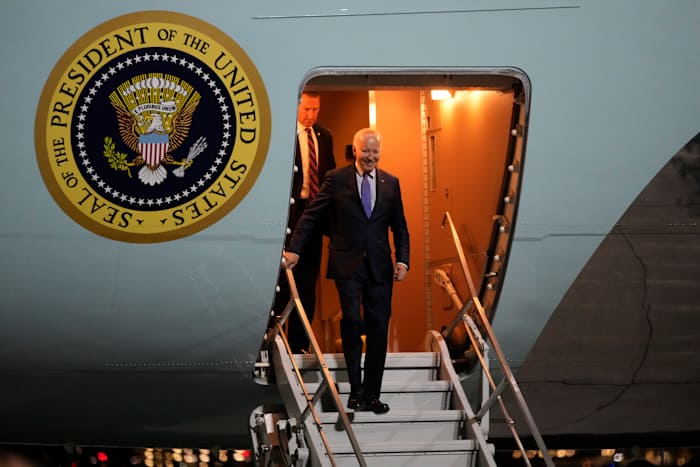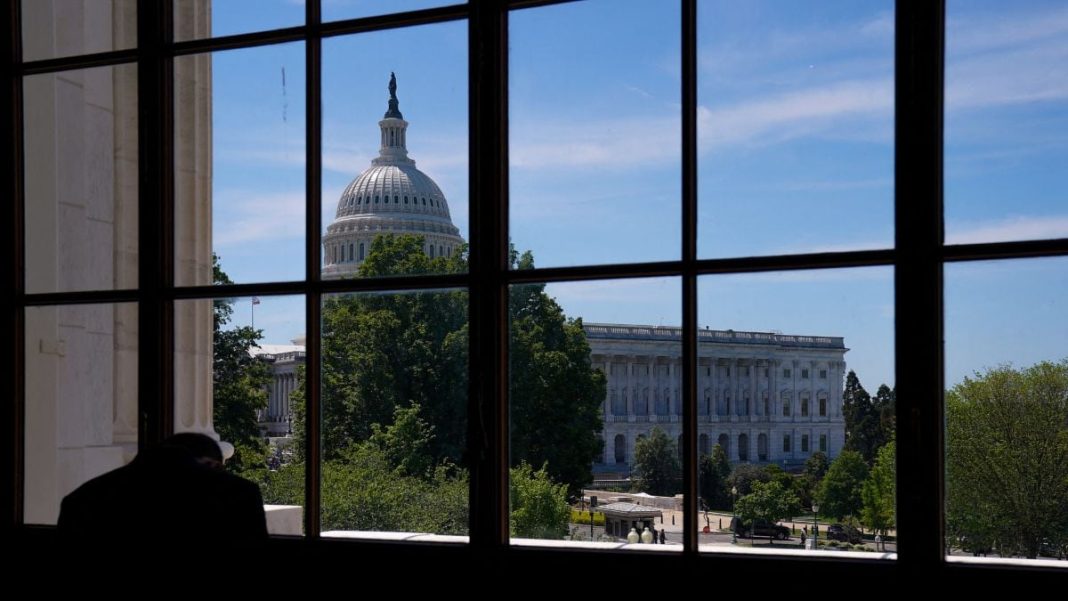Biden’s Berlin Visit: Navigating Global Challenges Amid Trump Concerns
BERLIN – President Joe Biden’s visit to Germany this Friday comes at a pivotal moment, not just for U.S.-European relations but also for the upcoming U.S. presidential election. As Biden meets with European allies to discuss pressing issues like Russia’s ongoing war in Ukraine and the escalating conflict in the Middle East, the shadow of Donald Trump looms large. With the election just weeks away and the race tightening, concerns are mounting about how a potential Trump victory could disrupt the diplomatic ties Biden aims to strengthen.
During his trip, Biden will engage in closed-door discussions with key leaders, including German Chancellor Olaf Scholz and French President Emmanuel Macron. The stakes are high, especially given Trump’s controversial stance on foreign policy. The former president has shown a willingness to impose tariffs on U.S. allies and has expressed skepticism about NATO’s collective defense commitments. His indifference to Ukraine’s plight raises alarms among European leaders who have relied on U.S. support throughout the conflict.
White House national security adviser Jake Sullivan, traveling with Biden, emphasized that the president’s goal is to make U.S. support for Ukraine "sustainable and institutionalized" for the long term. Sullivan clarified that while Biden can articulate his vision for America’s role in the world, he cannot predict what a future Trump administration might do. "What President Biden can do is lay out his vision based on what he believes are America’s national security interests," Sullivan stated.
Trump, for his part, has claimed that his leadership would have prevented the current crises, asserting that he could "end the war in Ukraine" and "stop the chaos in the Middle East." His rhetoric resonates with some voters who feel that a more isolationist approach could benefit the U.S. economy and protect it from foreign exploitation.
Back in the U.S., Biden has been vocal in countering Trump’s misinformation, particularly regarding disaster relief efforts. He has labeled the former president’s tactics as "un-American," highlighting the stark contrast between their leadership styles. Meanwhile, Vice President Kamala Harris has echoed Biden’s support for Ukraine and Israel, while also emphasizing the humanitarian needs of Palestinian civilians affected by the ongoing conflict.
Biden’s message to foreign leaders has consistently been that "America is back," a sentiment met with cautious optimism. Many leaders express concern about the longevity of this commitment, questioning how long the U.S. will remain engaged after Trump’s presidency. This visit to Berlin is particularly significant for Biden, who has prioritized strengthening ties with allies, having already visited key nations like Japan, South Korea, and the United Kingdom.
The day’s agenda includes a meeting with German President Frank-Walter Steinmeier, where Biden will receive Germany’s Order of Merit, an honor previously awarded to former President George H.W. Bush for his role in German reunification. Following this, Biden and Scholz will discuss strategies for Ukraine, the situation in Israel and Gaza, and broader issues like China and renewable energy.
Interestingly, while Biden aims to underscore the importance of democratic values during his visit, he has opted not to hold a news conference, a decision that has drawn some criticism. Sullivan defended this choice, arguing that the structure of Biden’s press engagement does not reflect a lack of commitment to democracy.
As Biden navigates these complex discussions in Berlin, the implications of his visit extend far beyond Europe. With the U.S. election looming, the outcome could reshape not only American foreign policy but also the global landscape, making this trip a crucial moment for Biden and his administration.



